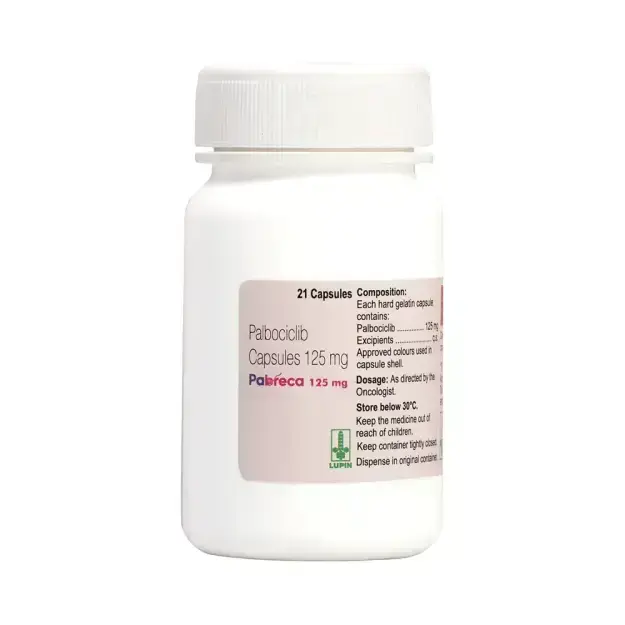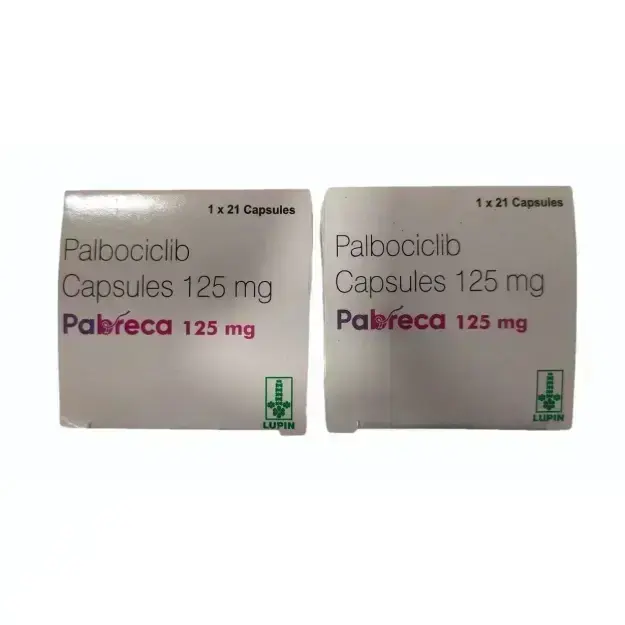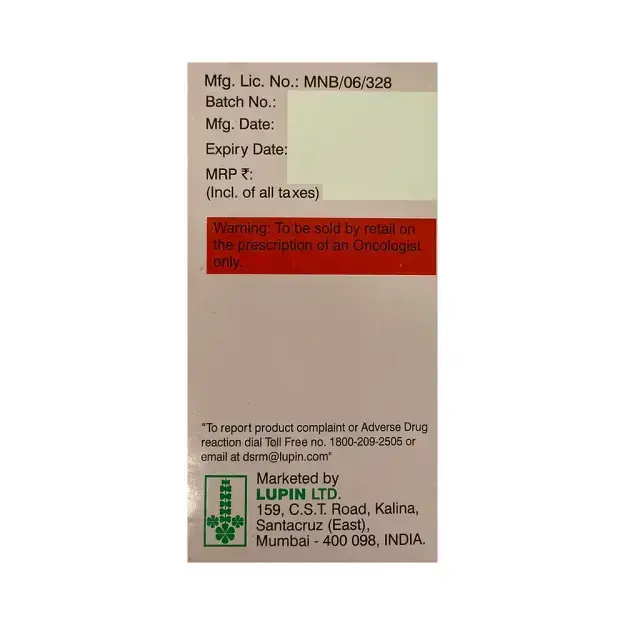Pabreca, consists of Palbociclib, is an oral medication developed for the treatment of hormone receptor-positive (HR+), human epidermal growth factor receptor 2-negative (HER2-) advanced or metastatic breast cancer. As a selective inhibitor of cyclin-dependent kinases 4 and 6 (CDK4/6), Palbociclib plays a crucial role in controlling cell division, thereby inhibiting the proliferation of cancer cells.
Mechanism of Action
In the G1 phase of the cell cycle, mammalian cells must pass a checkpoint, known as the restriction point "R", in order to complete the cell cycle and divide. CDK4 and CDK6 complex with Cyclin D drive the phosphorylation of the retinoblastoma protein, Rb, which allows the cell to pass R and commit to division. Regulation of one or more proteins involved in this checkpoint is lost in many cancers. However, by inhibiting CDK4/6, Palbociclib ensures that the cyclin D-CDK4/6 complex cannot aid in phosphorylating Rb. This prevents the cell from passing R and exiting G1, and in turn from proceeding through the cell cycle.
Indications and Usage
Palbociclib is approved for use in combination with other therapies for the treatment of HR+, HER2- advanced or metastatic breast cancer:
-
With an aromatase inhibitor: As initial endocrine-based therapy in postmenopausal women and in men who have not been previously treated with hormone therapy.
-
With fulvestrant: In adults whose disease has progressed following endocrine therapy.
These combinations have been shown to improve progression-free survival in patients with advanced breast cancer.
Palbociclib represents a significant advancement in the treatment of HR+, HER2- advanced or metastatic breast cancer. By targeting specific proteins involved in cell cycle regulation, it offers a targeted approach to therapy, improving progression-free survival when combined with endocrine treatments. Ongoing research continues to explore its full potential and strategies to overcome resistance mechanisms.
Administration and Dosage
The recommended dosage of Palbociclib involves taking the medication once daily for the first 21 days of a 28-day cycle, followed by a 7-day break. Capsules should be taken with food, while tablets can be taken with or without food. It's important to swallow the capsules and tablets whole without opening, chewing, or crushing them. If vomiting occurs after taking a dose, patients should not take an additional dose but continue with the next scheduled dose. Dose adjustments may be necessary based on individual tolerance and side effects.
Side Effects
Common side effects of Palbociclib include:
Serious side effects can occur, such as severe neutropenia leading to infections, interstitial lung disease, and liver function abnormalities. Patients should promptly report any signs of infection, breathing difficulties, or unusual bleeding to their healthcare provider.
Drug Interactions and Precautions
Palbociclib is metabolized primarily by the liver enzyme CYP3A. Concomitant use of strong CYP3A inhibitors (e.g., clarithromycin, ketoconazole) or inducers (e.g., rifampin, St. John's wort) can affect Palbociclib levels in the blood. Patients are advised to avoid grapefruit products during treatment, as they can increase drug levels. Regular blood tests are necessary to monitor blood cell counts and liver function during therapy. Women of childbearing potential should use effective contraception during treatment and for at least three weeks after the last dose due to potential harm to a fetus. Men with female partners of reproductive potential should use contraception during treatment and for three months after the final dose.
Similar Drugs
Other CDK4/6 inhibitors approved for HR+, HER2- advanced breast cancer include:
These agents share a similar mechanism of action but may differ in their side effect profiles and dosing schedules.
X







